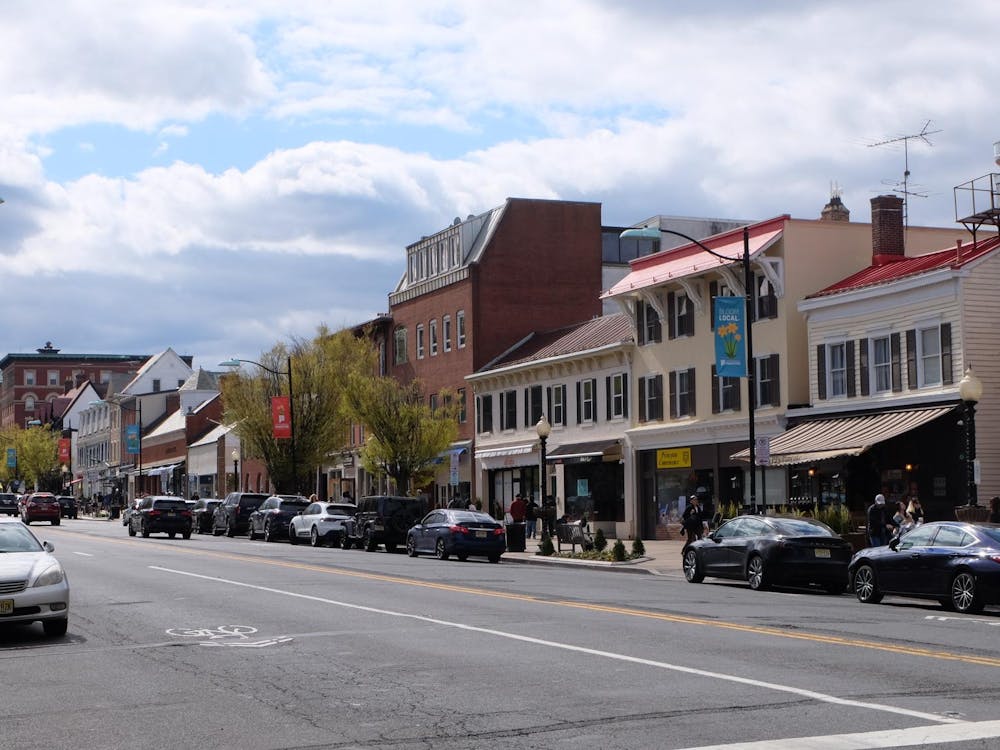In a public conversation on Tuesday afternoon, senior members of the Student Non-Violent Coordinating Committee discussed their experiences with the Civil Rights Movement alongside current efforts to transform economic and racial inequality in present-day America.
University professors Eddie Glaude ’97, Joshua Guild and Imani Perry moderated the discussion among five SNCC board members: Charles “Charlie” Cobb, Courtland Cox, Ivanhoe Donaldson, Robert “Bob” Parris Moses and Larry Rubin.
After explaining their various backgrounds, the five panelists expounded upon their involvements in the Civil Rights Movement and discussed perspectives on the divide between race and class as it applies to tensions in our current world and phenomena such as the Occupy movements.
Looking back to the 1960s, “I think about the journey that we’ve traveled,” said Cox, an alumnus of Howard University and former director of the Minority Business Development Agency during the Clinton administration.
“We faced physical intimidation by state law; we faced terrorism by organized groups such as the [Ku Klux] Klan; we faced psychological intimidation by the newspapers and academia; we faced barriers [to] housing and education. All of these things were part of a systematic effort to ‘keep the negro in his place,’ ” Cox explained.
“Nothing that we did was really revolutionary or radical. The thing that distinguished SNCC and everybody else was that we focused on those most economically inferior. Our ability to stand with the community of those locked out [of society]” is what made SNCC’s effort powerful, Cox said.
Similarly, Cobb — a journalist, author, Brown University visiting professor and former foreign affairs reporter for NPR — noted that he now pays “more attention to the tensions between the haves and have-nots,” whereas he thought “in much more racial terms in the 1960s.”
Rubin — a former speechwriter, political advocate and public-relations specialist for the labor movement — said he spent much of his career focusing on African-American and Jewish relations. The only non-African-American member of Tuesday’s panel discussion, he began by stating that he was “born working to change society.”
“I learned that to [create] change, the job was to get Mrs. Jones a car so she could get to the mass meeting. To me, that knowledge was transformative. It’s one thing to have an intellectual or political approach to changing society, but we figured out the interface between class and race,” he explained.
While working with the NAACP and various student movements throughout the South, Moses explained how he was “introduced to a network of people who had figured out a way to live a life that had real meaning [and] was rooted in their communities. But every day they were in struggles against their state and country.”
Despite these conflicts, however, “each generation has to lift its flag and go forward,” explained Donaldson, chairman of a political research firm in Washington, D.C., and former activist who helped tenant farmers in the South and demonstrated during Mississippi’s “Freedom Summer” in 1964.
In a discussion about voter registration, Donaldson asserted that “we have to be constantly vigilant when we see [injustice] happening whether we live in the neighborhood or not — because we live in the United States.”

Donaldson then related an anecdote about Republican presidential candidate Michele Bachmann, who stated in a Fox News interview that she takes a strict constructionist stance with regards to the judicial system. “Does she remember,” Donaldson said, “that [the original interpretation of the Constitution] didn’t include her?”
If the Constitution were unchanged from its origins, “[she] couldn’t run for president, let alone vote!” Donaldson explained. “That’s absurd — and the same holds for black rights.”
In a discussion about economic inequality and the potential of the Occupy Movement, Cobb noted that “the heroes of the Civil Rights movement were those local people who risked their lives [for] the right to vote. I think the message of the 99 percent is that most of us are locals today — we need to organize our peers, because most of us are up against it. We need to look outward instead of inward. People who want social change today haven’t figured it out yet.”
Peyton Morgan ’14 said he felt that “even though SNCC is not an active participant in the Wall Street movement, there’s a particular level of institutional memory that the [panelists] have to offer. Knowledge about community organizing is very difficult to pass down, and it’s valuable to see the commonalities between these experiences,” he said.
Similarly, Hannah Rosenthal ’15 said she recognized the benefits of “recognizing the problem [of inequality] and thinking about [how to] effectively mobilize communities ... It was great to see a diverse group of people in the audience — white people, black people, old and young — who cared about creating change.”
This discussion, titled “Where Do We Go From Here?” was presented in McCormick 101 and co-sponsored by the Center for African American Studies, the Department of History and the Program in American Studies.







